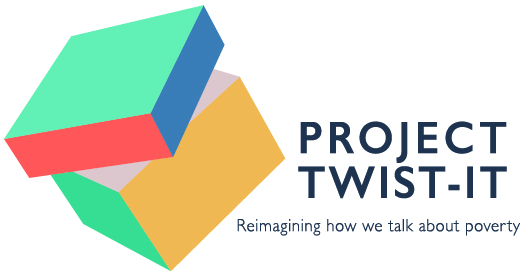Kat Calvin – Spread The Vote
Kat Calvin is the founder of Spread The Vote, a non-profit organization that works across multiple states to help the homeless, poor, and immobile populations get IDs at no cost – so that they can apply for jobs, get housing, receive medical care, vote and more.
Spread The Vote’s initiative – Project ID – helps ANYONE (not just eligible voters) get the government-issued IDs they need to provide them with access to opportunities they wouldn't otherwise have. Often times, when Spread The Vote / Project ID helps someone get an ID, they say it allows them to "feel like a person again" and gives them a sense of identity.
Kat Calvin, Spread The Vote
Since the organization’s founding in 2017, Spread The Vote has been powered by over 30 local chapters in Florida, Georgia, Tennessee, Virginia, and Texas. As of this year, they’ve also expanded to Indiana, North Carolina, Louisiana, and West Virginia – with plans to spread to Arkansas, Kansas, and South Carolina in the next few months. This is all part of their big-picture goal to operate in all 22 states that require photo ID to cast a ballot – and help combat voter suppression and address many other challenges that the homeless and low-income communities across the country face.
Project Twist-It speaks with Kat Calvin
What is Spread the Vote and why is it important?
Spread The Vote obtains IDs for eligible voters, educates those voters and voters across the country, and helps them get to the polls. Over 21 million eligible voters in America do not have government-issued photo ID and if they live in one of the 20+ photo ID states, they cannot vote. But IDs are difficult to obtain. They cost money, time, transportation and more. We help people navigate those challenges and get the IDs they need.
What is Project ID?
Project ID is a new brand under STV through which we obtain IDs for everyone, whether they are eligible to vote or not, so they can use them for jobs, housing, medical care, anything they need.
Why is the intersection of poverty and having a valid ID so important in America?
You cannot legally obtain an ID without a job so it’s almost impossible to escape poverty without one. But not only that, a lot of safety nets are difficult to obtain without ID. Many food banks require ID, as do many homeless shelters. Everywhere the most vulnerable people in America turn, they are asked for ID. Without one, they can’t get their lives back on track.
What do people tell you this issue of means to them?
Is it about having a voice? Having a say? Having access that others have?
The first thing many people say is “I’m a person now”. It really is about feeling like a human with access to society. Next they almost always want to apply for jobs. Or get desperately needed medical care. Or find a place to sleep for the night. IDs are about surviving and thriving.
How important is it that as a society we talk about poverty and poorer people in a meaningful way?
It’s obviously important! An enormous percentage of our society are people who are struggling through daily life. We ignore them, step over them, disgrace them, and vilify them. It’s unethical and bad for our country and our economy. Human beings are human beings, regardless of how much money they have in their bank accounts.
What in your view is the current dominant narrative around poverty and poorer people?
I think we’re starting to understand that we’re all very close to the edge, that most Americans don’t have enough savings to cover a $400 emergency, that society is built to keep the rich very rich and the rest of us struggling. Look at the incredibly high percentage of Americans who support a 70% median tax rate. Most of us have struggled, are related to someone who has struggled, are friends with someone who has struggled. I tried to give away a lot of clothes a few weeks ago and was thrilled to find that our local shelters had more donations than they could count. People understand that life is very, very hard and that all it takes is a little bit of bad luck to away all of the privilege that we’re used to. The big thing that most folks want is solutions.
What is the role of negative stereotypes and stigma in this?
It’s not the 90s anymore. The narrative that I hear the most is people who understand that anyone trying to vilify or stereotype the poor is doing so for selfish, political reasons.
How can we change the narrative to reflect reality rather than stereotypes?
We just need to keep focusing on solutions. The fight for 15. The fight for CHIP and Medicare for All. There is a huge groundswell of support for policies that lift all boats and we just need to keep fighting.
What can personal stories and testimonies contribute to shifting the narrative?
Personal stories and testimonies are always how you change the narrative! That’s what people connect to.
What do you think Project Twist-It does to add something to the conversation around poverty and poorer people?
I’ve been on your site and it seems that you tell stories of people from different walks of life. That’s always very powerful.
What are your plans for Spread the Vote going forward?
Keep growing and keep getting IDs!


